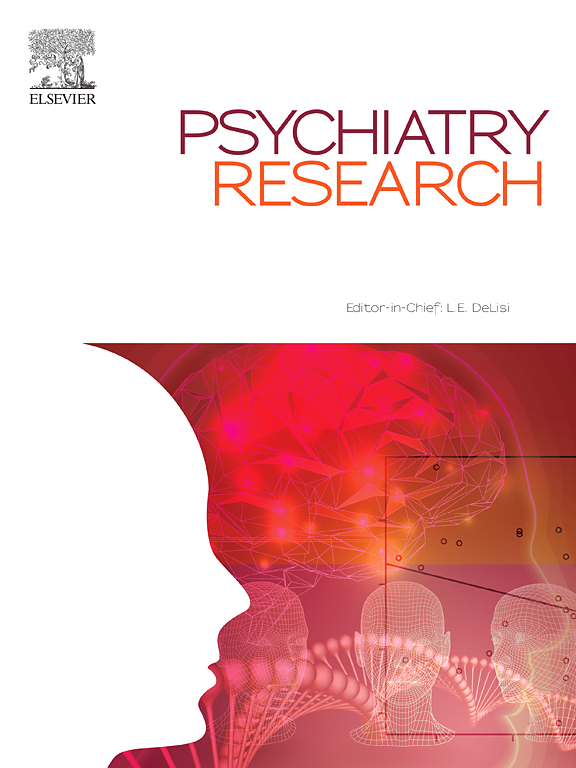Effects of cognitive behavioral therapy (CBT) on addictive symptoms in individuals with internet gaming disorders: A systematic review and meta-analysis
IF 4.2
2区 医学
Q1 PSYCHIATRY
引用次数: 0
Abstract
Objective
We examined the effects of Cognitive Behavioral Therapy (CBT) on addiction symptoms in patients with internet gaming disorders and examined the moderating effects of participant characteristics, research methodologies, and features of interventions.
Methods
We systematically searched nine databases through May 2024 without date restrictions using the following search terms: (cognitive behavio* therapy) AND (addict* OR dependen*) AND ((internet or gaming) AND dis*). Studies included were primary studies with evaluating CBT in patients with internet gaming disorders. Studies were included if they used a control group and were written in English. Both randomized control trials and quasi-experimental designs were included. We used a random-effects model to compute effect sizes (ESs) using Hedges’ g, forest plot, and Q and I2 statistics as measures of heterogeneity. We also examined moderator analyses.
Results
We found 13 studies with 1,115 participants (19.08±3.99 years old) that met inclusion criteria for this meta-analysis. Overall, patients with internet gaming disorders in the CBT group demonstrated significantly lower addiction symptoms (g = 0.72, 95 %CI:.420, 1.011, p<.001) compared to controls. Regarding moderators, funding, characteristics’ participants at baseline, group discussion, length of intervention and dose were moderators affecting the ES.
Conclusion
CBTs are moderately effective interventions to reduce addiction symptoms among patients with internet gaming disorders. Clinicians might consider encouraging CBTs as alternative treatments for patients with internet gaming disorders. CBTs with a long length and high dose of intervention for practicing are likely to have a greater effect in reducing addiction symptoms.
求助全文
约1分钟内获得全文
求助全文
来源期刊

Psychiatry Research
医学-精神病学
CiteScore
17.40
自引率
1.80%
发文量
527
审稿时长
57 days
期刊介绍:
Psychiatry Research offers swift publication of comprehensive research reports and reviews within the field of psychiatry.
The scope of the journal encompasses:
Biochemical, physiological, neuroanatomic, genetic, neurocognitive, and psychosocial determinants of psychiatric disorders.
Diagnostic assessments of psychiatric disorders.
Evaluations that pursue hypotheses about the cause or causes of psychiatric diseases.
Evaluations of pharmacologic and non-pharmacologic psychiatric treatments.
Basic neuroscience studies related to animal or neurochemical models for psychiatric disorders.
Methodological advances, such as instrumentation, clinical scales, and assays directly applicable to psychiatric research.
 求助内容:
求助内容: 应助结果提醒方式:
应助结果提醒方式:


